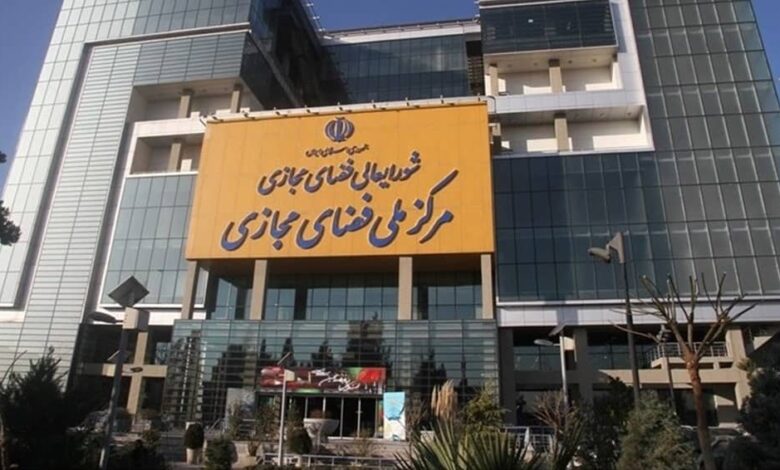Deciphering Iran’s Regime Backpedaling of VPN Ban and Exploring Future Motives

iran supreme council cyberspace
The building of the Supreme Council of Cyberspace in Tehran
Three-minute read
Written by
Shahriar Kia
Following widespread criticism regarding the ban on VPNs (virtual private networks) in Iran, the spokesperson for Ebrahim Raisi’s government attempted to minimize the significance of the measure and its potential societal implications.
On February 20, state media outlets announced that a recent decree issued by the Supreme Council of Cyberspace (SCC) had deemed the use of VPNs unlawful in the future. This decree had received confirmation from Ali Khamenei, the Supreme Leader of the Iranian regime, on January 9th.
In 2011, the regime’s Supreme Leader Ali Khamenei ordered the establishment of the SCC to restrict the Internet and effectively block access to free information.
Speaking on state TV on February 25, Ali Bahadori Jahromi refrained from directly mentioning the Supreme Council of Cyberspace. Instead, he indicated that a “supra-governmental council” had implemented legislation prohibiting VPN usage, primarily targeting “governmental and state apparatuses,” dismissing the ruling as a “mistake made at an inappropriate time.”
Jahromi asserted that state entities have been prohibited from using VPNs due to concerns about cyber threats and hacking. However, his statements appear both confusing and contradictory, particularly given that the Raisi government is responsible for enforcing internet filtering, rendering the government’s use of VPNs nonsensical.
Analysts speculate that Jahromi’s mention of “inappropriate timing” suggests the issuance of this directive on the eve of elections, as the regime endeavors to counter a widespread nationwide boycott. Typically, preceding elections, the regime seeks to create a false sense of freedom through propaganda efforts.
According to Article 6 of the new SCC resolution, the use of VPNs (Virtual Private Networks) was generally prohibited. The new ban, which was confirmed by Khamenei on January 9, triggered widespread reactions both domestically and internationally.
#Iran News in Brief
MP Javad Nikbin admits that the clerical regime not only imposes political restrictions through #internet censorship but also benefits economically from it.
He stated in a TV interview, “I believe and say it explicitly that the authors of internet censorship… pic.twitter.com/oSGV4ensuh— NCRI-FAC (@iran_policy) November 8, 2023
Before now, the sale of VPNs had been outlawed, but it’s the first time their usage has been formally banned, a decision that has sparked mockery even within regime circles. Mohammad Jafar Nanaakar, a legal expert on cyberspace, commented, “This resolution lacks concrete enforcement in its prohibition clause… The authors aren’t legal experts and assume that the ban will stop everything, halting VPN usage altogether.”
State officials offer various rationales for the VPN ban, one being to “promote domestic products.” They argue that VPN usage might divert users from domestic platforms to primarily foreign-hosted ones, to the detriment of Iranian companies.
Another reason cited by officials is “combating soft warfare waged by enemies.” Authorities claim that “Iran’s adversaries seek to promote Western culture and values and undermine Iran through cyberspace.” They argue that VPN usage could assist these “enemies” in achieving their objectives.
It’s also essential to consider the profiteering aspect of the regime. By enforcing filtering, they drive people towards VPN usage. VPN-developing companies, largely owned or affiliated with state entities, profit enormously from this situation. Now, by criminalizing VPN usage, they seek another form of exploitation through fines.
The prohibition of this tool will entail numerous challenges and consequences. One such challenge is the further restriction of access to information. With many websites and social networks already filtered, Iranian users have been compelled to use VPNs to access them. Now, with the ban on VPN usage, access to these information sources is expected to be extremely limited.
Another challenge is the reduction in the prosperity of online businesses. Many Iranian online businesses operate through foreign platforms like Instagram and Telegram to provide services to domestic customers. With these platforms becoming inaccessible, these businesses will face significant obstacles.
#Iran News in Brief
According to Tehran Electronic Commerce Association, more than 33% of the top 100 websites in the world are filtered in Iran, making it the world's most restricted internet with a filtering rate of 45%. https://t.co/6m4fppPx4T pic.twitter.com/FMKOHZF6NH— NCRI-FAC (@iran_policy) July 17, 2023
Moreover, the ban on VPN usage may fuel increased public discontent. Many Iranians already resent the extensive censorship of websites and social networks, viewing VPNs as a means to circumvent these restrictions.
Conversely, the regime’s primary concern lies in the potential collapse of its censorship mechanisms. This fear has plagued the clerical rulers for years and their initial attempts to establish a domestic internet have yet to materialize.
Previously, crimes and tragedies such as the 1988 massacre were committed by the rulers with literally no media coverage. However, today, any misconduct by the regime swiftly spreads across social networks, reaching the global community’s conscience in no time. In this context, the push to criminalize VPN usage appears to be an effort to suppress whistleblowing and dissent.
If enforced, the vast majority of Iranians would be labeled “criminals” and subject to fines. Following the facade of elections of March 1, whether the regime will find another pretext to justify the VPN ban remains uncertain. Obviously, the regime will persist in enforcing its censorship efforts and this is something that the world can effectively work against.

